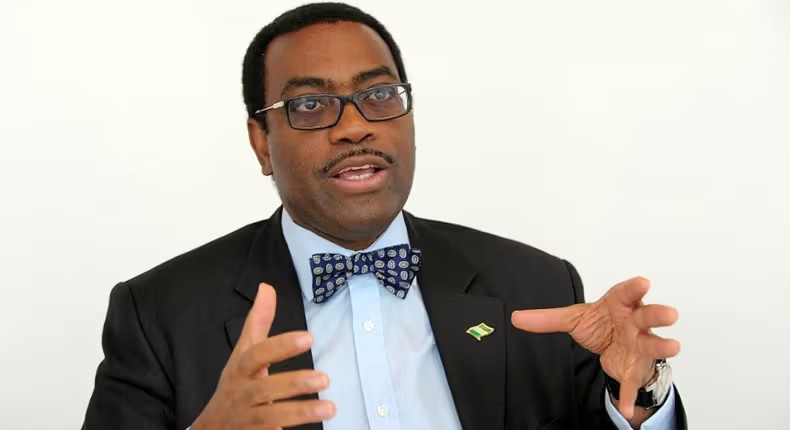Akinwumi Adesina, the President of the African Development Bank Group (AfDB), has expressed deep concern over Nigeria’s stagnant state in various development sectors, despite the nation being 64 years independent. He made these remarks during a lecture titled “Building a Global Nigeria” to celebrate the 90th birthday anniversary of retired General Yakubu Gowon in Abuja.
Adesina lamented that after decades of independence, Nigeria should have evolved into a developed nation, highlighting that the country should be a model for Africa and the wider black community globally. He referenced the vision of Nigeria’s founding fathers, who aspired for the country to be a beacon of hope for Africa.
He emphasized that Nigeria’s development is crucial for the overall growth of the African continent, stating, “When will Nigeria develop?” is a recurring question from leaders across Africa. He compared Nigeria’s potential to that of Saudi Arabia, which led the development of the Gulf region, and stressed that Nigeria must rise to avoid disappointing the continent.
Citing examples from global development patterns, Adesina noted that countries like Germany and the UK spurred growth in Europe, while China and Japan played similar roles in Asia. He warned that for Africa to advance, it is imperative for Nigeria to develop more rapidly.
Adesina highlighted the severe poverty afflicting Nigeria, with a 2022 National Bureau of Statistics report indicating that 63% of Nigerians—approximately 133 million people—are multi-dimensionally poor. He pointed out that many Nigerians rely on traditional fuels for cooking and suffer from inadequate access to essential services such as sanitation, healthcare, and housing.
He linked this pervasive poverty to rising issues such as kidnapping, drug abuse, and social unrest among the youth. To address these challenges, he called for urgent and comprehensive efforts to restore security, protect livelihoods, and stabilize economic conditions. Key areas for improvement include education, health, social protection, and job creation programs, along with tackling the increasing number of out-of-school children.
Adesina concluded with a hopeful vision for Nigeria’s future, urging leaders to work towards creating a poverty-free nation and to prioritize the needs of the rural population, which he described as “forgotten and abandoned.”

